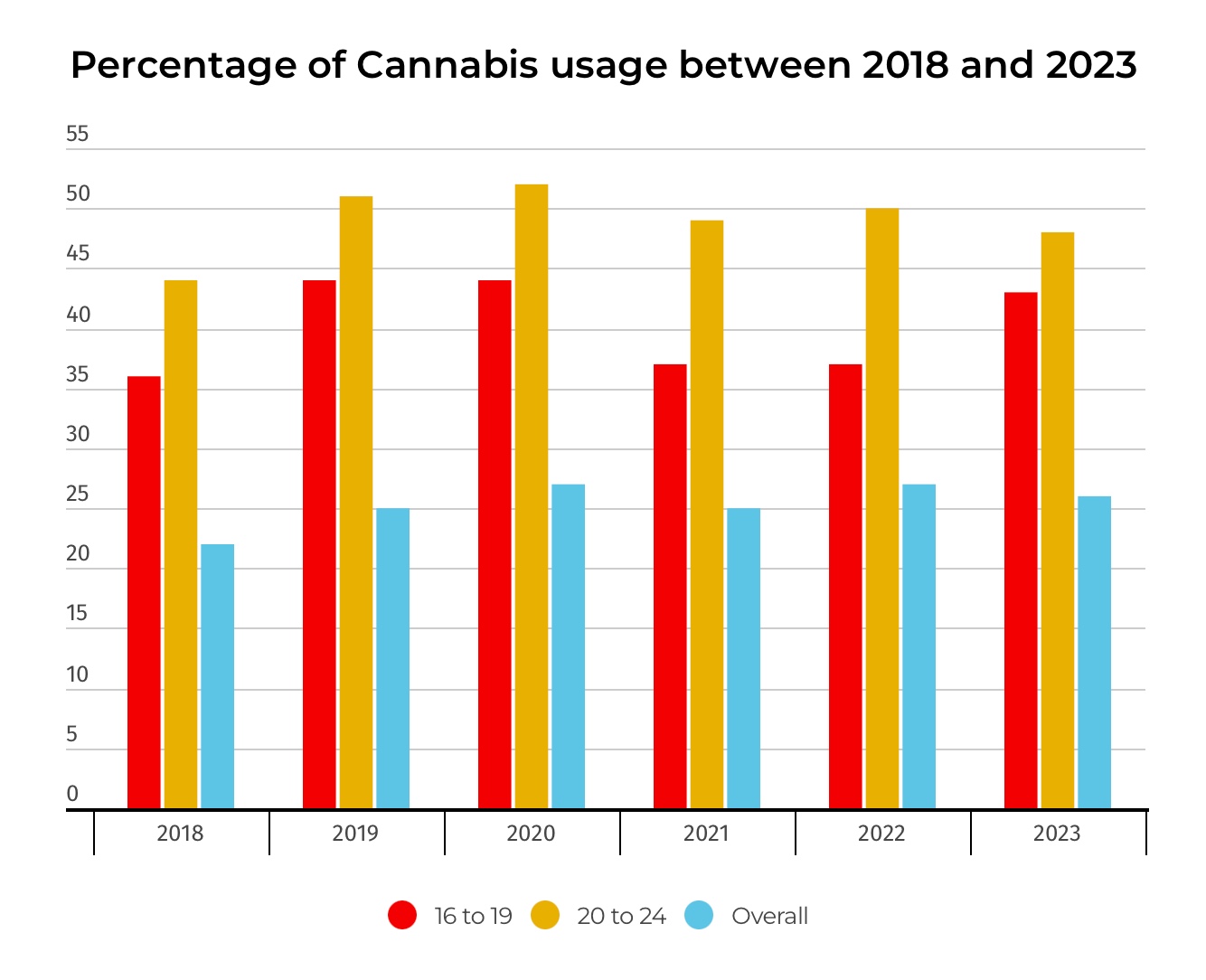
Canadian youth drawn back into cannabis market after two-year fall off
Long-term health risks higher in young cannabis users
By CAROLINE BASSO
A decrease in the stigma around cannabis has led to a substantial increase in its popularity amongst Canadian youth, according to a recent Health Canada report.
The Canadian Cannabis Survey from Health Canada released last month showed that the percentage of young Canadians aged 16 to 19 using marijuana increased to 43 per cent from 37 per cent in 2022.
“I want to say we have had a lot more 19-year-olds in the past like month, than like, I have ever seen,” said Emily Price, who has been working at a marijuana dispensary on Commercial Drive since June of last year.
According to the report, the 16 to 19 group remains the second-largest demographic of cannabis users in Canada.
Andrew Diaz, an 18-year-old cannabis user who did not go by his real name because of stigma and fears around future employment, said most young Canadians using cannabis likely succumb to peer pressure.
“It is the thing you do to look cool, sometimes a community thing, like all [your] friends are doing it,” Diaz said.
The mental and physical disadvantages of using in adolescence
Diaz said he was heavily into cannabis use but the more he smokes pot, the more anxious he gets.
Chantal Vallerand, the executive director of Drug Free Kids Canada based in Vancouver, said there are several reasons young people start smoking marijuana. She said “COVID has had an impact on mental health and developing higher depression symptoms, higher anxiety, feeling of isolation,” and that this turned youth to using substances, including cannabis, as a coping mechanism.
Vallerand also warned that long-term, young peoples’ brains are affected as the human’s prefrontal cortex isn’t fully developed until the age of 25. This region is “responsible for impulse control, motion regulation, judgment [and] decision making.”
Once they reach adulthood, she said we see a connection between the high use of THC to heart disease and stroke, as well as struggles with learning memory, critical thinking and judgment skills. The risk of developing psychosis and schizophrenia for vulnerable individuals that have family history with these disorders is increased.
Charlie Vogt, a 20-year-old user, said he started when he was 16 and now he is feeling the effects.
“I feel like I have probably trouble with my memory sometimes,” he said, adding that it also worsens his asthma.
Risk levels vary for minors shopping for weed
Vogt said he knows some parents who give cannabis to their kids.
Obtaining cannabis through illegal means remains a common method for youth, according to Vallerand. She said she’s seen “kids being able to access it online and getting it delivered.”
Tim Grace, a former social service employee in Vancouver, said the legalization of cannabis has pushed illegal dealers to sell to a younger demographic.
“[Minors are] going to access it another way and the way they access it is through people that are breaking the rules,” Grace said.
Grace said families must work together when faced with cannabis use.
“The only way to do it is for parents to be aware of what the kids are doing and be really connected with them.”
Vallerand said parents should have informed and educated conversations with their kids. She said a recent study suggested that 63 per cent of teens prefer their parents as a relevant source of information about substance use. Kids will trust their parents if they come “from a place of information [and] curiosity, as opposed to judgment,” Vallerand said.
This podcast explores the health disadvantages put on heavy smokers.


Comments are closed.